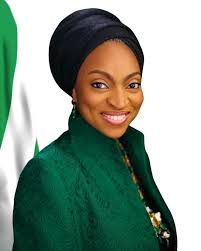Despite ongoing inflation challenges, Dr. Jumoke Oduwole, Nigeria’s Minister of Industry, Trade, and Investment, has reaffirmed that the Tinubu administration is strategically diversifying the economy away from oil dependency by unlocking the potential of non-oil sectors.
Oduwole made this statement during the third day of the 16th National Council on Industry, Trade and Investment in Lagos, themed “Accelerating Diversification by Leveraging Industry, Trade, and Investment for Shared Prosperity.” The event was hosted by the Lagos State Government in collaboration with the Federal Ministry of Industry, Trade, and Investment.
NAIJABLOGDAILY.COM
“Nigeria is experiencing high inflation, but President Bola Tinubu is implementing sustainable policies to stabilize the economy. We’re shifting from oil dependence by building capacity in non-oil sectors, especially manufacturing and trade,” Oduwole said.
She emphasized that economic diversification requires collaboration between federal and state governments, calling it a “national project” that must involve all stakeholders.
Sanwo-Olu, Stakeholders Call for SME Growth and Policy Implementation
Lagos State Governor Babajide Sanwo-Olu, represented by Dr. Olugbemiga Aina, called for increased funding, local goods consumption, and the execution of long-standing policies aimed at revitalizing Small and Medium Enterprises (SMEs) in Nigeria.
“From the 1st to the 15th council meetings, several policies have been crafted. Now is the time for full implementation if we want to rebuild Nigeria’s economy,” he said.
Sanwo-Olu added that Lagos State remains a hub for manufacturing, innovation, and intra-African trade under the AfCFTA, positioning itself as a preferred destination for sustainable investment.
Minister of State John Onoh Decries Policy Gaps
Minister of State for Industry, Trade and Investment, John Onoh, acknowledged the frequent policy-development cycles but stressed that implementation remains Nigeria’s biggest economic hurdle.
“Nigeria doesn’t lack policies — what we lack is effective implementation. Our economy spends over $10 billion annually on imports, and SMEs contribute less than 20% to GDP. That must change,” Onoh asserted.
He urged stronger private sector partnerships and pledged the ministry’s commitment to positioning Nigeria as Africa’s industrial powerhouse.
HEED: Follow us on Instagram or any other social media platform and get the most reliable news directly in your favourite app!
Key Takeaways:
Tinubu’s administration is focused on non-oil sector growth, including manufacturing, trade, and SMEs.
Leaders demand real-time implementation of economic policies to stabilize inflation and foster growth.
Nigeria aims to reduce imports and empower local businesses through collaboration and investment.
NaijaBlogDaily# is visible on all social media platforms, and we bring you the latest Nigerian news on politics and economy, entertainment, and celebrity updates, including sports across Nigeria and beyond…
Keep visiting and following up with us on any social media platform you are using to keep you updated 💯
Remember (information brings knowledge and power).
STAY TUNED!!!



